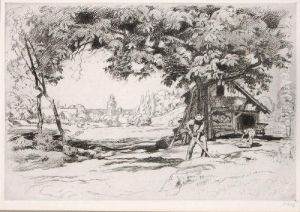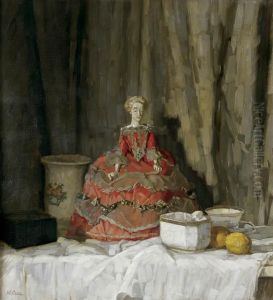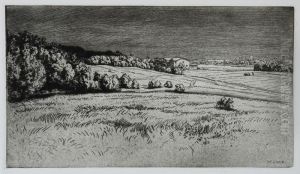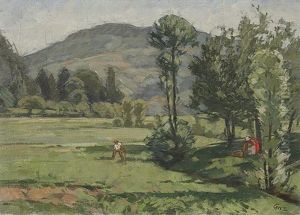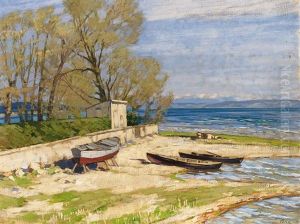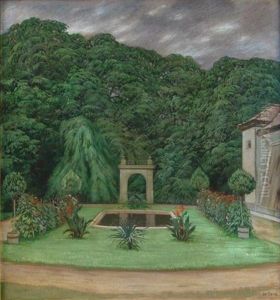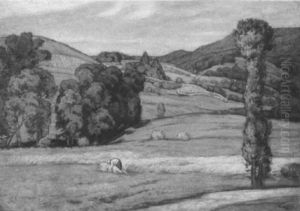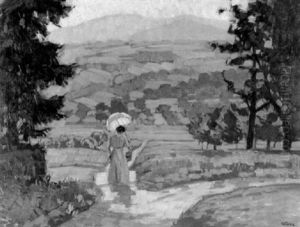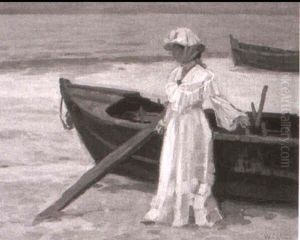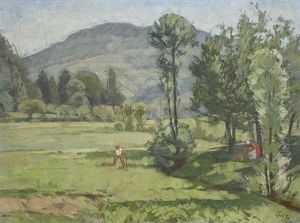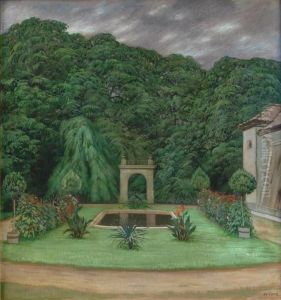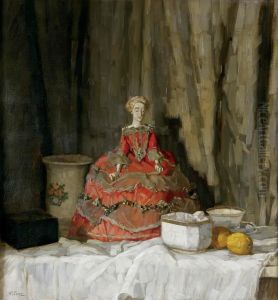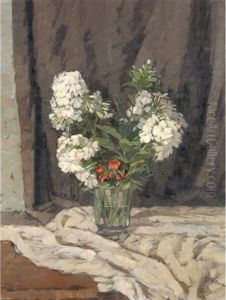Walter Conz Paintings
Walter Conz was a prominent German painter and graphic artist, whose work significantly contributed to the art landscape in Germany during the late 19th and early 20th centuries. Born on February 25, 1872, in Freiburg im Breisgau, Germany, Conz developed an interest in art from a young age. He pursued his passion by studying at the Academy of Fine Arts in Karlsruhe, where he was influenced by the academic and classical training prevalent at the time. However, as his style evolved, Conz began to incorporate more modernist elements into his work, reflecting the broader shifts in European art movements of the era.
Throughout his career, Conz was known for his versatility, working across a range of mediums including painting, drawing, and etching. His subject matter was equally diverse, covering landscapes, portraits, and scenes of everyday life. One notable aspect of his work was his ability to capture the essence of his subjects with a delicate touch and attention to detail. This sensitivity, combined with his technical skill, earned him a place among the respected artists of his generation.
Conz's contributions to the art world were not limited to his own creations. He was also a dedicated teacher, sharing his knowledge and skills with younger artists. After serving in various teaching positions, he was appointed as the director of the Karlsruhe Academy of Fine Arts in 1919, a position he held until his retirement. In this role, he played a significant part in shaping the education of a new generation of artists, influencing the direction of German art.
Despite the changing art trends over the decades, Conz remained committed to his artistic vision, producing a body of work that was both personal and reflective of the times. He witnessed and adapted to the major events of the early 20th century, including World War I and the rise of modernism, which influenced the themes and styles of his later works.
Walter Conz passed away on January 17, 1947, in Karlsruhe, Germany, leaving behind a legacy that has continued to be appreciated by art historians and collectors alike. His contributions to German art, both as a creator and an educator, have made him a significant figure in the country's cultural history. Through his work, Conz captured the spirit of his era, offering a window into the past for future generations to explore and appreciate.
